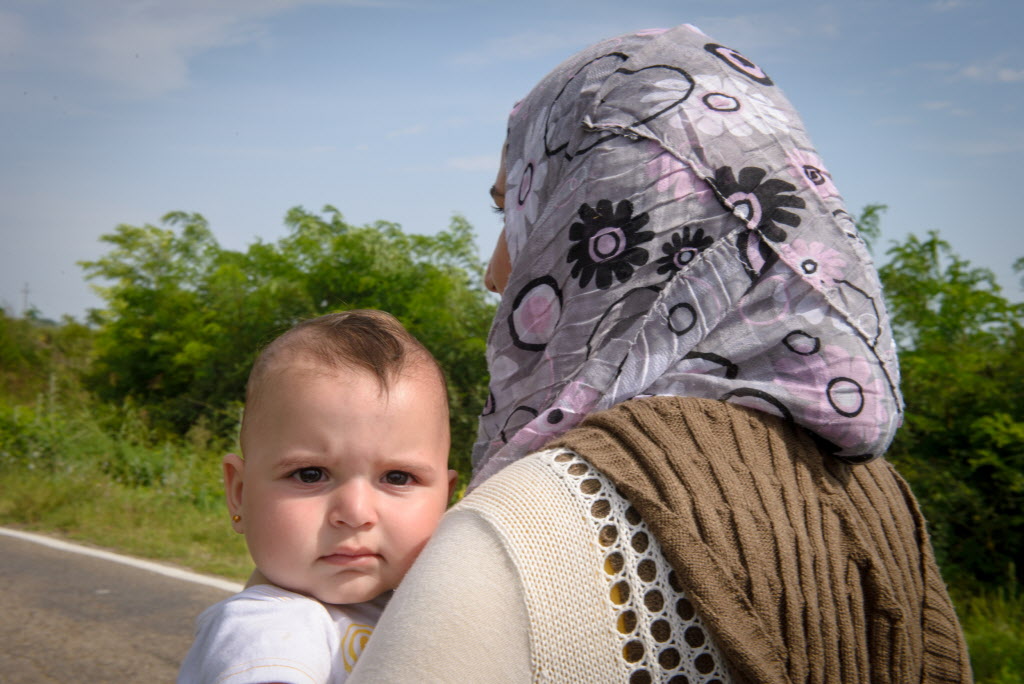
On September 2 photographs of Alan Kurdi, a 3-year-old Syrian who drowned off the shores of the Mediterranean, shocked and offended the conscience of the world. Alan’s death highlights the brutal effects of the Syrian civil war and the mounting refugee crisis it is spawning: since the onset of violence 4 years ago over 10 million people have been driven from their homes. In desperation, tens of thousands are risking death again to flee to Europe.
As the leaders of humanitarian, human rights, and faith-based organizations who work with and for those who have fled Syria, as well as those still trapped by the violence, we come together to ask that you urgently lead the international community to address both immediate symptoms of the crisis as well as the root causes of conflict. A bold, new, and comprehensive plan is essential to address not only the needs of the millions who have fled Syria, but to end the violence that is causing this global catastrophe that shows no prospects of fading. Seizing the urgency of the moment and the opportunity of the upcoming United Nations General Assembly (UNGA), the U.S. should work with allies to create a comprehensive plan that encompasses these four core points:
Announce that the U.S. will resettle 100,000 Syrian refugees in FY2016: We ask that you ensure that the United States, founded as a nation of immigrants, rises to the occasion and offers protection and a warm welcome to Syrians in desperate need of asylum. While your recent announcement to increase the total number of refugees resettled in the United States is a commendable first step, the scale of the Syrian crisis demands bolder action. America should remain committed to its proud tradition of offering refuge for those fleeing the horrors of war. We urge you to demonstrate greater U.S. leadership on this issue and announce that the U.S. will resettle 100,000 Syrian refugees in FY2016. This figure is in line with precedents set by the United States in the cases of Vietnamese, Cuban, and Russian Jewish populations fleeing during times of conflict and would transform the lives of tens of thousands of people who have suffered in the face of appalling conflict and send a strong signal to other countries to follow suit.
Put an end to the bombardment of civilian areas: Attacks targeting civilian locations such as schools, markets, and hospitals remains the primary force driving Syrians across borders in search of safety and security. It is critical that the U.S. take immediate and concrete actions to ensure civilians inside Syria are protected from these horrific attacks. As a first step, the U.S., in its role as a leading member of the United Nations Security Council (UNSC), should proactively support passage of the French-proposed Resolution, which includes measures to establish a mechanism to track and publicly expose indiscriminate attacks by any means against civilians, including barrel bombs, mortars, and car bombs, and to lay down clear consequences for violators.
Devise and implement a comprehensive regional development and reconstruction plan: While the U.S. should take pride in its generous humanitarian response, including its provision of $4 billion in humanitarian assistance to Syrians, the vast scale of the crisis demands a more robust and comprehensive funding plan. Syria’s neighbors continue to shoulder a disproportionate number of refugees and need our support. The United States took a leadership role both diplomatically and financially for European recovery following the Second World War through the Marshall Plan. A similarly proportional response is needed for a comprehensive recovery and support plan for Syria and its neighbors. The U.S. should work with allies and the United Nations to lead in a funding and development plan for Syria and its neighbors, mirroring the scale and commitment of the Marshall Plan instituted to repair war-torn Europe, to meet the urgent needs of refugees in the region and foster their resilience. Such a plan should move beyond humanitarian emergency relief to include sustainable development projects, education, livelihood programs, and reconstruction.
Prioritize a political solution with human rights at the heart: Finally, the U.S. must put the pursuit of a political solution to the conflict in Syria as its top diplomatic priority. The institution of an Iran nuclear deal has opened new diplomatic channels to pursue peace for Syria. These developments have given you an opportunity to step up efforts towards a political solution with human rights at its heart: until the conflict is resolved, Syrian civilians will continue to be killed or flee the country – and it will not be safe for them to return. Russian military deployments in Western Syria only adds to the urgency. Reigniting the political process is the only way that the killing of Syrian civilians will end, that the problem of the Islamic State will be fully addressed, and that the Syrian people will be able to realize their ultimate dream: a safe return home.
Alan’s death was a dramatic wake up call for the international community. This is a moment that urgently demands U.S. leadership to establish a bold, comprehensive plan to deal with this crisis. We stand ready to support your efforts to achieve these ends.
Sincerely,
About World Vision:
World Vision is a Christian humanitarian organization conducting relief, development, and advocacy activities in its work with children, families, and their communities in nearly 100 countries to help them reach their full potential by tackling the causes of poverty and injustice. World Vision serves all people regardless of religion, race, ethnicity, or gender. For more information, please visit www.WorldVision.org/media-center/ or on Twitter @WorldVisionUSA.
Highlights
- Group of more than 30 aid organizations calls for the President to lead the international community in addressing the crisis
- Nearly 12 million have been driven from their homes due to the violence